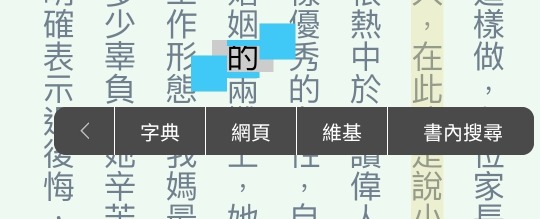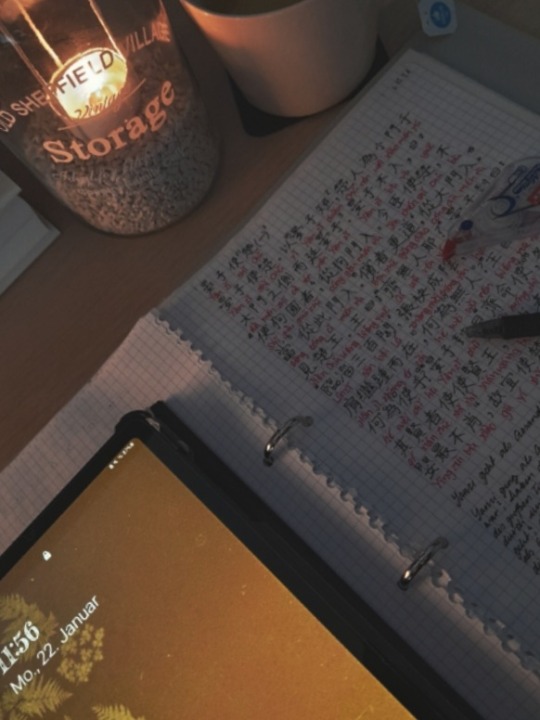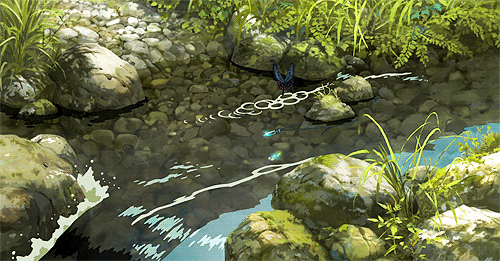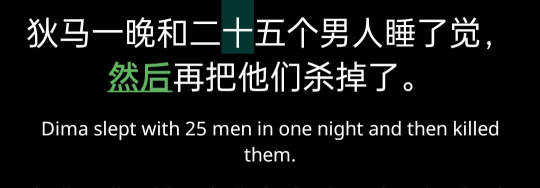#learn mandarin chinese
Text
Reading Chinese Ebooks on 讀墨 ReadMoo
For the past few years, I've labored under the assumption that I can't read Chinese ebooks because I just can't focus on them. However, I recently saw someone on insta mention the app 讀墨. I was intrigued, and decided to give it a try. And wow, what a shock, I can in fact read Chinese ebooks! I just have to change it to vertical text and make the font very large.
So the past couple weeks I've been trying to read more consistently using 讀墨. The book I started with was slow going at first, which almost made me give up; it was the Chinese translation of The Last Cuentista by Donna Barba Higuera. This book really wasn't for me, and I didn't want to keep reading it. So instead of just giving up, I bought one more book and tried again: 《你的孩子不是你的孩子》 by 吳曉樂 (yes, it is the basis for the Netflix show of the same name).
I devoured the book in under a week. So yeah, I think Chinese ebooks work for me if I like the book.
Below is gonna be an overview of the app, and my thoughts on it so far. It's not comprehensive though, since there's a lot of things on this app I haven't explored yet (like the audiobooks).
***Please note that 讀墨 is a Taiwanese app, and as such it mainly offers books written in traditional characters. There are apparently books written in simplified available, but I haven't explored those since I'm fine reading traditional.***
Buying Books
Buying books is fairly simple. You make an in-app purchase of coins, which you then use to buy books. Note: As of writing this, I have recently recently received a notification from the app that their book purchasing system will be changing soon. Instead of being able to buy the books in the app, you'll have to log in to your account in a browser and buy the books there. The books will apparently then appear on the app for you to read.
As it stands, 210 coins costs $10.99, and the books I've bought have ranged in price from 210 to about 300 coins. That means the books cost ~$11-$16, just like a regular book. This could be pricey, but since I'd otherwise be paying for international shipping if I were buying a physical copy, this feels like a bargain to me. (For me, shipping books from Taiwan/China to the US typically doubles the price of the purchase rip)

Once you buy the book, it's in your library for you to start whenever you please.
As for browsing for books, I haven't gone too in-depth yet. I went in to 讀墨 with a TBR and went for books off that list exclusively. When it comes to buying books online, I almost always go on whatever site I'm buying from with a list of the books I'm thinking of buying. I get recommendations elsewhere (e.g., Goodreads or insta).
Reading Books
The 讀墨 reading interface is pretty typical for an e-reader app. What makes me like it way better than other apps I've used is that it has a lot more customization options.
For starters, you've got 6 options for page/text color. There's the typical black, white, and sepia, but there's also blue and green! I use the 奶綠 option, since I don't like having such a stark contrast between the text and the background when reading on my phone for long periods.
Then there's the options for changing the text size and spacing. You can make it bigger or smaller as you please, and put more or less space between each line of text.
You can also change the font. There's 8 different fonts you can choose from, including the default. There's even a font that puts 注音 next to each character! You can see a preview of that one in the photo below.
And then, there's the option to switch between horizontal and vertical text. The default is horizontal text, but I've come to prefer vertical when reading Chinese novels. If you go to your settings on your profile, you can make vertical text your default, which is what I ended up doing.

Like any good e-reader, there's options to highlight text. There's four different colors you can use (pink, yellow, purple, and blue). If you go the ToC, you can find all of your highlights and filter by color of highlight. Super convenient, since I've been using pink to highlight words/phrases I don't know or find interesting and yellow to highlight key sentences/paragraphs.

Aside from highlighting, when you select text you have the option to look the characters up in a dictionary or online. I've been getting a lot of errors with this recently, but I'm wondering if that's just my phone acting weird? It worked perfectly fine when I first started using the app. Anyways, the dictionary it takes you to is 夢典 MoeDict and it opens in a browser. This personally is a bit annoying bc I actually have this dictionary app installed on my phone, but this is a minor complaint. The dictionary opening in a new browser tab is a non-issue.

Reading Stats
Now, I'm a big dork and love to track my reading stats. To my great satisfaction, 讀墨 keeps track of some stats. The main one is time spent reading. You can set a daily goal (the minimum is 20 minutes), and if you reach it you get a nice checkmark on the calendar. The calendar doesn't update until the very end of each day, so if you've reached your goal for the day it won't show on the calendar until the next day.
Also, keep in mind time differences between where you live and Taiwan. I'm ~12 hours behind Taiwan, so the app doesn't start a new day until around noon for me.
Below the calendar, there's a chart that shows your total reading times for a week, month, or year. I normally can't be bothered to time my reading (especially not when I'm reading physical books) so this is cool to see. I think when it comes to reading in Chinese, being timed is more interesting because I'm able to more clearly gauge progress.


And below all that, there's a breakdown of the genres you read. I don't pay much attention to genre when choosing books, so I don't find this one quite as interesting.

(tfw you're reading a non-fiction book about a tutor so your main genre becomes 教育)
Overall Thoughts
So yeah, I've enjoyed myself so far. Aside from the reading interface, I find the app pretty easy to navigate. I spent a bit of time just clicking around and was able to figure out what's what pretty quick.
Like I said, this isn't a comprehensive review, but I'd recommend giving the app a try if you're willing/able to put down money for ebooks and are able to read traditional. It feels worth the money for me, since the interface is pretty customizable and easy to use.
If you're wondering where to find simplified ebooks, idk. This is my first real foray into Chinese ebooks, so I don't really know where to find them for simplified or traditional. I have heard that it is a little easier to pirate Chinese ebooks since their copyright laws are a little different than ours in the US?
#langblr#mandarin chinese#mandarin langblr#chinese langblr#learn mandarin chinese#learn mandarin#learn chinese#mine#books
60 notes
·
View notes
Text
im just like hugo shinji murakami fr but I don't think it's a good thing...
#just thinking thoughts...#sorry some of the stuff he said about japanese brazilians is exactly how I feel about taiwanese americans...#why do you guys get together like this. you dont speak japanese you only know like. jpop. what are you getting out of this#I wondered this myself at those taiwanese american dinner family-friend gatherings#it just felt like they were proud of their heritage because if they weren't they would be crushed and erased#but at the same time they're not willing to put in the effort to say#learn mandarin chinese#like I'm reading his words and it all seems very gatekeepery but also. I have also had those thoughts#I don't necessarily agree with all of it anymore but like. I get him.#my sister says it's impossible to date someone taiwanese because it's impossible for them to understand american politics#(like racism. I think racism against black people is especially hard to comprehend. like 'why don't they just x about it???'#(I don't think you understand what systemic means.)#but like. I dunno. I'm not sure I could date someone who isn't taiwanese. how would they ever understand THAT??#you will never 'lose' american politics the way you can lose taiwanese culture...#uh like it sounds like she wants someone who understands her suffering. while I want someone to understand my ideals. you know
3 notes
·
View notes
Text
In light of Duolingo laying off its translators, here are my favourite language apps (primarily for Mandarin Chinese, Japanese, and te reo Māori).
Multiple Languages
Anki is a flashcard programme and app that's not exclusively for languages. While making your own decks is ideal, you can also download shared decks for most languages.
If you're learning Japanese, specifically, Seth Clydesdale has websites for practicing alongside Genki's 2nd or 3rd editions, and he also provides his own shared Anki decks for Genki.
And if you're learning te reo Māori, specifically, here's a guide on how to make your own deck.
TOFU Learn is an app for learning vocabulary that's very similar to Anki. However, it has particularly excellent shared decks for East Asian languages. I've used it extensively for practicing 汉字. Additionally, if you're learning te reo Māori, there's a shared deck of vocabulary from Māori Made Easy!
Mandarin Chinese
Hello Chinese is a fantastic app for people at the HSK 1-4 levels. While there's a paid version, the only thing paying unlocks is access to podcast lessons, which imo are not really necessary. Without paying you still have access to all the gamified lessons which are laid out much like Duolingo's lessons. However, unlike Duolingo, Hello Chinese actually teaches grammar directly, properly teaches 汉字, and includes native audio practice.
Japanese
Renshuu is a website and app for learning and practicing Japanese. The vast majority of its content is available for free. There's also a Discord community where you can practice alongside others.
Kanji Dojo is a free and open source app for learning and practicing the stroke order of kanji. You can learn progressively by JLPT level or by Japanese grades. There's also the option to learn and practice kana stroke order as well.
10K notes
·
View notes
Text
Learn Mandarin Chinese in Delhi
Have you ever envisioned immersing yourself in the beauty of one of the world’s most captivating languages? Embarking on the journey to learn Mandarin Chinese can be an exhilarating adventure. Whether you’re driven by a fascination with its intricate characters, the allure of Chinese culture, or the desire to enhance your cognitive abilities, learning Mandarin Chinese opens up a world of possibilities.
The Significance of Learning Mandarin Chinese
Before we delve into the numerous advantages of mastering Mandarin Chinese, let’s explore why this language holds such profound significance. Mandarin Chinese is more than just a language — it’s a key to unlocking the essence of a culture that spans thousands of years. With over a billion speakers, it stands as the most spoken language globally, making it a powerful tool for communication, connection, and exploration.
The Benefits of Learning Mandarin Chinese
1. Cultural Immersion
Learning Mandarin Chinese grants you a unique window into a rich tapestry of culture. As you navigate the language, you’ll uncover the roots of ancient traditions, art forms, and philosophies that have shaped Chinese civilization. From calligraphy to literature, gaining proficiency in Mandarin Chinese opens the door to a deeper appreciation of this multifaceted culture.
2. Global Interaction
In a world that’s becoming increasingly interconnected, Mandarin Chinese serves as a bridge for global communication. With China’s growing influence in various sectors, from business to technology, learning Mandarin allows you to engage meaningfully with Chinese speakers around the world, fostering connections that transcend borders.
3. Career Opportunities
Mastering Mandarin Chinese offers a distinct advantage in the professional arena. Many industries are seeking individuals who can effectively communicate with Chinese partners and clients. Whether you’re pursuing a career in international business, diplomacy, or research, your proficiency in Mandarin can set you apart and expand your career possibilities.
4. Cognitive Enhancement
The intricacies of Mandarin Chinese offer a mental workout that enhances cognitive abilities. Its tonal nature and intricate characters challenge your brain in unique ways, promoting memory retention, problem-solving skills, and mental agility. Learning Mandarin isn’t just about language — it’s about nurturing your mind’s capacity to adapt and thrive.
5. Personal Growth
The journey of learning Mandarin Chinese is a personal growth experience. It teaches perseverance, patience, and the thrill of overcoming challenges. As you navigate the complexities of the language, you’ll gain a sense of accomplishment that bolsters your self-confidence and resilience in the face of obstacles.
Conclusion
Embarking on the path to learn Mandarin Chinese is a decision that encompasses more than language acquisition — it’s a journey of cultural immersion, global connection, and self-discovery. Beyond the linguistic skills you’ll acquire, learning Mandarin enriches your life with a deeper understanding of a vibrant culture and a heightened ability to engage with the world. So, take the first step into this enchanting world, and unveil the beauty of learning Mandarin Chinese today.
#Mandarin Chinese#mandarin language#mandarin chinese language#learn mandarin chinese language#learn mandarin chinese
0 notes
Text
Advice I would give my past self about studying Chinese

Recently I've been reflecting on my Chinese learning journey and how far I've come. If I could go back in time, these are 10 things I would tell my past self. A few are specific to Chinese, but most can apply to any language
It will get so much easier to learn new characters. I remember feeling overwhelmed because learning new characters was a painful process. Now when I encounter a new character, I can remember it with relative ease—it’s just a new combination of familiar components.
Don't feel bad about having uneven development in different skills. My listening and reading are significantly stronger than my speaking and writing. It’s super common and nothing to be ashamed of.
The best way to get over being too embarrassed to speak is to experience some embarrassment and realize it’s not a big deal. I used to be so afraid of making mistakes that I would avoid speaking in class. It was only by being forced to speak that I got over it. I'm much better for it!
It’s impossible to learn everything, and time is limited. You have to prioritize. You probably don’t need to know how to say “pawnshop” in Chinese, and trying to jam your head full of 100 words you saw once won’t work. They won’t stick.
It will actually be harder to read pinyin than to read characters at some point. When I helped a friend with a script for her Chinese class, I really struggled because she had written it entirely in pinyin. I had to write out the characters to read without stumbling! I know characters are daunting for beginners, but trust me, you will get used to them.
If you haven’t practiced or learned something, of course you won’t be good at it. I remember feeling so frustrated trying to navigate Chinese websites for the first time. In retrospect, obviously, I was going to struggle with something completely new to me!
If something isn’t sticking, move on. Why waste time on a word that’s not clicking when you could be learning five new ones? It will only result in unnecessary frustration. So unless you need to know it for your class or a proficiency test, drop it and move on.
Don’t beat yourself up when you have trouble understanding music, literature, different accents, etc. These can be challenging even in your native language. Of course you’re going to struggle more in a new language.
It's worth it to pay attention to things like stroke order and tones from the start so you don't form bad habits. Don’t stress about get it perfect, but it’s easier to do it right the first time than to have to correct your bad habits in the future.
Instead of feeling overwhelmed by all that you don’t know, learn how to express yourself with what you do know. It’s truly its own skill that requires practice. After all, in life you can’t always stop and pull out a dictionary.
I started learning Chinese a really long time ago, but I became more serious about it in 2018, so 5 1/2 years ago. I'm very proud of how far I've come, but I still have a long way to go! I look forward to revisiting this post in another couple of years 😊
#my learning#chinese#mandarin#mandarin chinese#chinese language#studyblr#langblr#learning languages#language learning#chinese langblr#mandarin langblr#languageblr
383 notes
·
View notes
Text
my Mandarin teacher has been giving us tongue twisters recently to help our pronunciation so I thought I'd share them:
first the classic:
四是四,十是十,
十四是十四,
四十是四十,
他们不是四十四
(sì shì sì , shí shì shí,
shí sì shì shí sì,
sì shí shì sì shí,
tā men bùshì sì shí sì)
four is four, ten is ten,
fourteen is fourteen,
forty is forty,
they are not forty-four
and then these two specifically focused on nasal finals:
青青山上一根藤,
青藤底下挂铜铃,
风吹藤动铜铃动,
风停藤停铜铃停
(qīngqīng shān shàng yì gēn téng,
qīng téng dǐ xià guà tóng líng,
fēng chuī téng dòng tóng líng dòng,
fēng tíng téng tíng tóng líng tíng)
On a green mountain there is a vine,
Under the green vine hang copper bells.
The wind blows, the vine moves, the copper bells move.
The wind stops, the vine stops, the copper bells stop.
扁担长,板凳宽,
扁担要绑在板凳上,
板凳不让扁担绑在板凳上,
扁担偏要绑在板凳上。
(biǎn dan cháng, bǎn dèng kuān,
biǎn dan yào bǎng zài bǎn dèng shàng,
bǎn dèng bú ràng biǎn dan bǎng zài bǎn dèng shàng,
biǎn dan piān yào bǎng zài bǎn dèng shàng)
The bamboo pole is long, and the wooden bench is wide,
The bamboo pole wants to be tied to the wooden bench,
The wooden bench doesn't let the bamboo pole be tied to it,
But the bamboo pole insists on being tied to the wooden bench
#i'll update as she gives us more#mandarin#tongue twisters#learn mandarin#chinese#learn chinese#langblr#chinese langblr
362 notes
·
View notes
Text
i haven't seen anyone talk about it before, but there's a site called 21st Century Chinese Poetry that has a massive collection of contemporary chinese poetry, including english translations thereof, for anyone who, like me, is interested in poetry but may feel a bit intimidated by the more literary nature of classical poetry. currently, they have poetry from between 2000-2021, and i, personally, have rather enjoyed poking around the site.
#chinese langblr#mandarin langblr#chinese#chinese language#mandarin#mandarin chinese#langblr#language learning#langblr resources#resources#汉语#indigo ink
735 notes
·
View notes
Text




Working on traditional chinese again today,,,copying down the last couple translations then learning the necessary vocabulary. I got about a week left until the exams and my anxiety levels are skyrocketing.
Also all the snow just vanished overnight, which kinda bummed me out...🥲
#study blog#studyblr#university#chinese studies#student#student life#learning languages#study motivation#languages#mandarin
204 notes
·
View notes
Text
今天的成语 An Idiom I Learned Today
recently learned about a new idiom and thought i would share! not sure if it counts as a 成语 per se, since it is 8 characters instead of 4. nonetheless here it is.
三天打鱼,两天晒网
sān tiān dǎ yú, liǎng tiān shài wǎng
literally: fish for 3 days, sun-dry the net for 2 days
figuratively: to lack perseverance; to not earnestly work toward something
example:
你要是三天打鱼两天晒网,那你永远不会进步。
If you "fish for 3 days but sun-dry the next for 2," then you won't ever improve.
it's the idea that if you work towards something for 3 days but then rest for 2, you're basically wasting your time and not putting in as much effort as you could—since you could be putting that effort in all 5 days.
it's definitely a very chinese concept 😅 i'm pro resting myself LOL
#chinese langblr#mandarin langblr#chinese learning#chinese#langblr#mandarin chinese#language learning#mandarin#learning languages#成语#chengyu#idioms#vocab#zhuzhu rambles
138 notes
·
View notes
Text
The directional "下/上/出/去/来" puzzle guide
I for one still confuse the usage of 出来 and 出去 and other similar structures so here's a guide to slightly depuzzle this puzzle.
上去 (Shàngqù): To go up and away from the speaker
下去 (Xiàqù): To go down and away from the speaker
出去 (Chūqù): To go out and away from the speaker
出来 (Chūlái): To go out and towards the speaker
上来 (Shànglái): To go up and towards the speaker
下来 (Xiàlái): To go down and towards the speaker
过来 (Guòlái): To ask someone to come over to the speaker
过去 (Guòqù): This one is tricky as it can have a few meanings so here are some random examples.
Movement away from the speaker e.g. 我来这家公司工作已经过去五年了= I have been working in this company for the past five years
Movement in time during the past e.g. 过去的年份里,公园里有很多树和花= In the past years, there were many trees and flowers in the park
Here's an illustration I made (it's been a while lol) to make it less (?) confusing:

#chinese#chinese grammar#mandarin langblr#chinese studyblr#learn chinese#studyblr#college#slavic roots western mind#student life#aesthetic#travel blog#study motivation#student#college life#study blog#langblr#language#linguistics
184 notes
·
View notes
Text
LANGBLR INTRO!!!

A little about me:
Call me Azara c:
Middle Eastern - Persian origins (not ir*nian please ;-;)
26 - isfp - sagittarius
lesbian - she/her
Got my BA in English Language and Literature with a minor in French
Preparing for an MA in Teaching English as a Foreign Language and self-studying and researching theoretical+applied+interdisciplinary linguistics

Languages I speak:
Arabic (native - standard and a dialect of the gulf)
Farsi (native but I don't speak the standard)
English C1
French (standard) B1/B2
Korean B1/B2

Languages Goals - short and long term:
IELTS BAND 9
Arabic (build my vocabulary for translation)
Advancing in Korean C1
Advancing in French C1
Learning Standard Farsi
Consistently learn Japanese for 60 days
Consistently learn Chinese for 60 days
Could post about other languages that interest me at one point!

How I learn languages
tv shows mostly as I rely a lot on pronunciation and sentence structures in speech
music - I mostly listen to English, Persian, Korean, Japanese and French songs but I am open to anything as long as it's good
used to take classes before covid and then I enrolled in online classes and hated them - they were bland.
textbooks that I spent a fortune on ;-;
Let's be friends !! ♡

#langblr intro#language learning#language#langblr#french langblr#japanese langblr#korean langblr#farsi langblr#arabic langblr#chinese langblr#mandarin langblr#academia#languages
102 notes
·
View notes
Text
Saw someone post this on insta:

Be positive
Be patient
成为阳性
成为病人
成为 「成為」 cheng2 wei2 to become, to turn into
阳性 「陽性」 yang2 xing4 positive (e.g., a positive covid test)
病人 bing4 ren2 sick person, patient
#langblr#mandarin langblr#chinese langblr#mandarin chinese#learn mandarin chinese#learn chinese#mine#m vocab
208 notes
·
View notes
Text
A sentence I got on Clozemaster a while ago

#langblog#langblr#language learning#chinese langblr#mandarinblr#mandarin langblr#mandarin#clozemaster#chinese
66 notes
·
View notes
Text

GUYS THIS HAS BEEN THE BEST WEEK OF MY LIFE I SWEAR. I THOUGHT THEY WOULDNT LET ME KNOW FOR A WHIIILE OMGOMG IM GOING TO TAIWAN
#studyblr#study blog#langblr#langblog#language learning#languageblr#chinese langblr#mandarin langblr#study abroad#taiwan#chinese language#mandarin chinese#mandarin studyblr#studyblr community#chinese studyblr#learning chinese#learn chinese#mandarin study#learn mandarin#studyabroad#exchange student#student life#uniblr#university#college
97 notes
·
View notes
Text
All the shishi words I know
Last year I learned the word 时事, and it struck me how many shishi words there are. For fun, I listed out all the ones I'm familiar with. You can see more at MDBG (but a Chinese-Chinese dictionary would probably have many more).
世世 shìshì - from age to age
世事 shìshì - affairs of life / things of the world
事事 shìshì - everything
事实 | 事實 shìshí - fact
失事 shīshì - (of a plane, ship etc) to have an accident (plane crash, shipwreck, vehicle collision etc) / to mess things up
实事 | 實事 shíshì - fact / actual thing / practical matter
实施 | 實施 shíshī - to implement / to carry out
实时 | 實時 shíshí - (in) real time / instantaneous
时事 | 時事 shíshì - current trends / the present situation / how things are going
时时 | 時時 shíshí - often / constantly
试试 | 試試 shìshi - to have a try
逝世 shìshì - to pass away / to die
I ran some stats based on my Anki deck, and there also a lot of qishi words: 其实、气势、骑士、启示、歧视、启事. But not as many as shishi. Maybe we need a poem of shishis to go alongside the 施氏食狮史 poem?
#nerdy language stuff#chinese#mandarin#mandarin chinese#chinese language#studyblr#langblr#learning languages#language learning#chinese langblr#mandarin langblr#languageblr
280 notes
·
View notes
Text
in like svsss fanfictions when characters refer to themselves as 'this one' what exactly are they saying? Like the hanzi, the pinyin, etc.
#chinese language#learning chinese#learning languages#languages#learning mandarin#foreign languages#Chinese#mandarin#mandarin langblr#hanzi#pinyin#help#svsss#svsss fandom#svsss fanfiction#moshang#luo binghe#shen qingqiu#shen jiu#scum villian self saving system#scum villain
86 notes
·
View notes